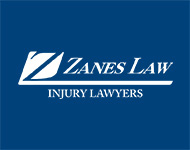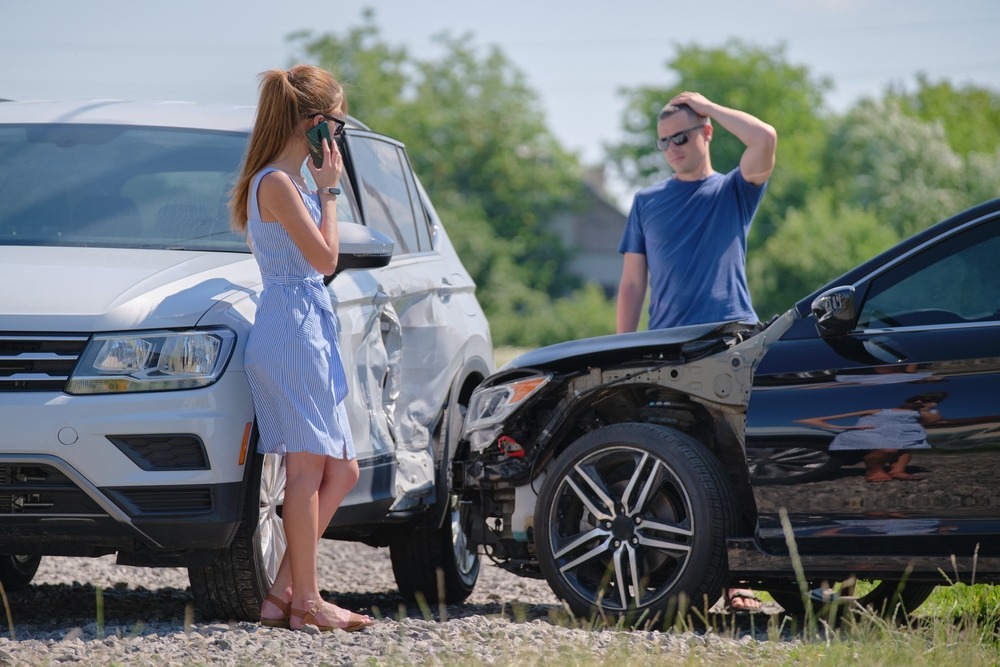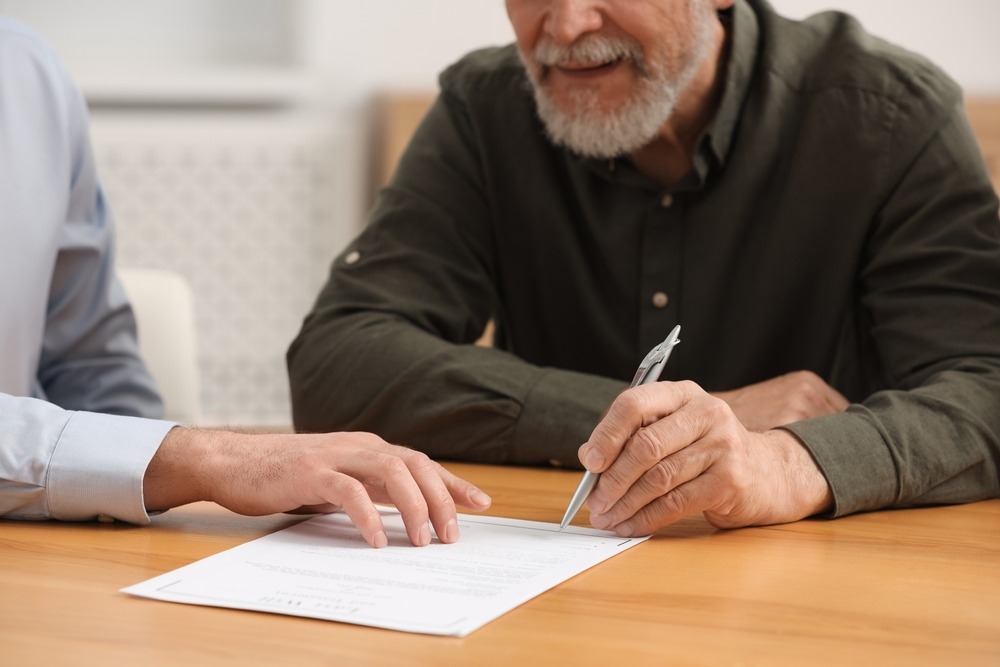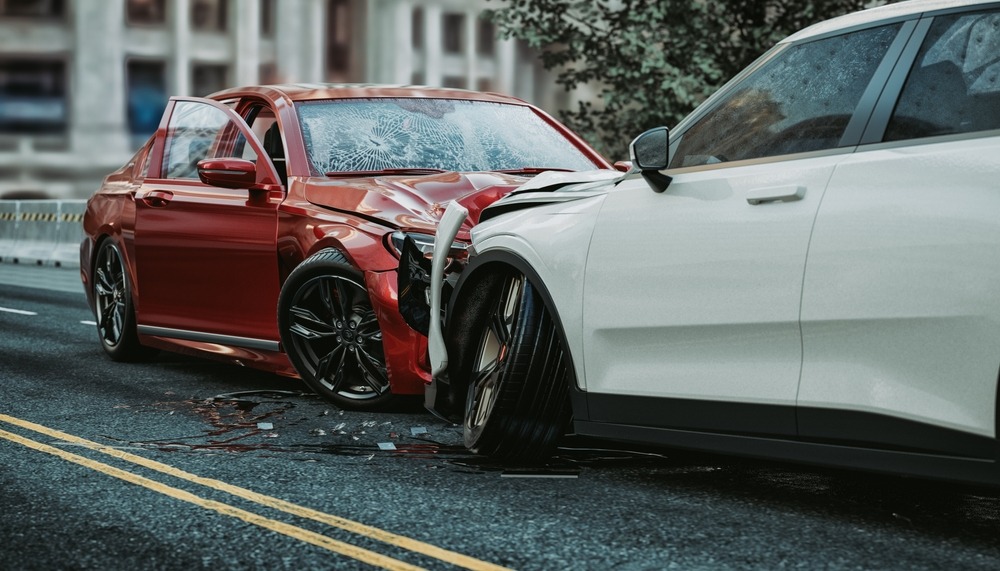![]() Contact Us (866) 499-8989
Contact Us (866) 499-8989
- Oral Depositions
- Written Depositions
- Tips for Answering Questions at Your Car Accident Deposition
- Tips for Answering Questions at Your Car Accident Deposition
- Home
- FAQs
- Car Accidents
- What Should I Expect in a Deposition for a Car Accident?
Depositions for car accidents occur during the pre-trial discovery process of your car accident trial. Opposing counsel will ask you, the “deponent,” questions to gather information about the accident. Your answers are considered a form of sworn testimony.
Depositions can be conducted orally or in a written format. In either case, you will be requested to give an oath (or some other affirmation, if more appropriate) that you will respond truthfully to the questions asked of you.
Oral Depositions
In an oral deposition for a car accident, you will report to a location agreed upon by all attorneys involved in your car accident case—often your lawyer’s office or a court reporter’s office. The attorneys for both the plaintiff and the defendant will be there, as will an individual qualified to administer oaths, as your responses serve as sworn testimony. Finally, a stenographer/court reporter will likely be there to type the questions and answers.
The Set-Up
Rather than testify from a witness stand, as is the case during trial, you will give your deposition while sitting at a conference table. Your lawyer will sit next to you. Opposing counsel will sit across from you. A representative from the opposition might also be present, sitting next to his/her attorney. This person may only observe the deposition and cannot confront you or ask you questions, so you need not worry about that discomfort.
The Process
After you swear to answer all the questions truthfully, opposing counsel will start to ask you questions. Your lawyer is not allowed to coach you through your answers, nor is he or she as free to object to deposition questions as with questions posed at trial.
If present, the court reporter will be clicking away, typing up the exchange between everyone in the room. Later, he or she will provide a written transcript of the dialogue.
You will have to answer all the questions orally. You are not allowed to nod for “yes” and shake your head for “no,” instead, you must speak those words.
Remember that the opposing counsel has called this deposition to retrieve information about the case, learn what you might say on the witness stand during the trial, and impeach you as a credible witness if your trial testimony should differ from your deposition statements.
The Questions You Can Expect
It is all about being truthful, and your attorney will prepare you for the deposition, so you know what questions to expect and how to keep your answers simple and direct, to offset the chance of nerves scrambling your words.
Generally, you will be asked questions about the following:
- Your personal background, including your medical, employment, and criminal background—as well as whether you have filed personal injury suits in the past
- Details of the accident, including who did what and when they did it, as well as your recollection of traffic and weather conditions, etc.
- Injuries you sustained and the treatment you received as a result.
What to Expect from Your Attorney at the Car Accident Deposition
Speaking of your car accident lawyer, do not expect much out of him or her at the deposition. Objections do not enter into the deposition hearings, because there is no need to keep inadmissible evidence from the jury when a jury is not present to hear it. The most your lawyer will do is to assert privilege (doctor-patient privilege, for example) or to realign questions that might be misleading or confusing to you.
For a free legal consultation, call (866) 499-8989
Written Depositions
In a written deposition, attorneys from both sides submit questions before the deposition takes place. When you arrive at the deposition, you will answer the questions in writing. The lawyers will not necessarily be present, and, if not, will not be able to ask follow-up questions based on your answers, as they would in an oral deposition.
Tips for Answering Questions at Your Car Accident Deposition
- Arrive early, so you have a chance to visit with your lawyer for last-minute advice.
- Do not answer until opposing counsel completes the question.
- Do not offer up any additional information other than what specifically answers the opposing counsel’s question.
- Speak up if you do not understand a question. Request clarification or rephrasing.
- Specify that you are guessing or estimating when you answer questions of which you are not certain of the answer.
- If you do not know the answer, say, “I don’t know” or “I don’t remember.” These are perfectly legitimate responses.
- Do not let opposing counsel get under your skin.
- Always accept the court reporter’s offer to read your deposition transcript before signing it. Not only can you spot errors in the transcription, but you can also change answers using an “errata sheet.”
Click to contact our personal injury lawyers today
Tips for Answering Questions at Your Car Accident Deposition
If you have been injured in a car accident caused by the negligence of another party, call Zanes Law personal injury lawyers at 866-499-8989. We will do everything from A to Z to get you the compensation you deserve.
Call or text (866) 499-8989 or complete a
Free Case Evaluation form
 Why Bruce Jenner’s Accident is a Lesson for ALL Drivers Out There
Why Bruce Jenner’s Accident is a Lesson for ALL Drivers Out There
Every media outlet has a scope on the recent and fatal Bruce Jenner car crash. Many accounts have recalled the incident in varying detail but none look promising for any party involved including the
 Phoenix Light Rail Crash
Phoenix Light Rail Crash
A very major and scary crash recently closed down a major Central and Indian School Road intersection. Although the crash has long been cleared since Saturday, the collision between a
 Tracy Morgan Lawsuit Finally Settles
Tracy Morgan Lawsuit Finally Settles
Many fans of the famous (now ended) sitcom, 30 Rock, anxiously followed the news after beloved actor and comedian Tracy Morgan was involved in a trucking accident. A Walmart tractor-trailer
 And Then It Happens To You… A Car Accident.
And Then It Happens To You… A Car Accident.
An accident victim who was injured in a car accident in Tucson, Arizona describes her experience in this guest post. You hear about them all the time. You have even witnessed some right in
Wrongful Death Blog Posts:

Are You Ready
For Compensation?
Our mission is to stand up for fellow Arizonans injured by someone else’s negligence. We are here to fight for you and get you the compensation you’re entitled to. We want you to get your life back together as soon as possible. We’re ready to do the heavy lifting of your case so you can focus on your recovery. If you’re ready to have the best team in the state standing behind you, complete the form below today for a free, no-obligation case evaluation, and our expert team will be in touch within 24 hours.
We understand the immense disruption a personal injury can have on someone’s life, and when we take on your case, we will work quickly to help you recover and regain control. We will make sure you get the medical attention you need, shield you from powerful insurance companies, and strive to get you the highest amount of compensation possible.
Want Us to Represent You?
Tell us what happened…
Receive a Free, No-Obligation, Case Evaluation Now
PHOENIX
-
(602) 999-9999
3333 E Camelback Rd, Ste 250 Phoenix, AZ 85018
CENTRAL TUCSON
-
(520) 777-7777
4580 E Grant Rd #101 Tucson, AZ 85712





